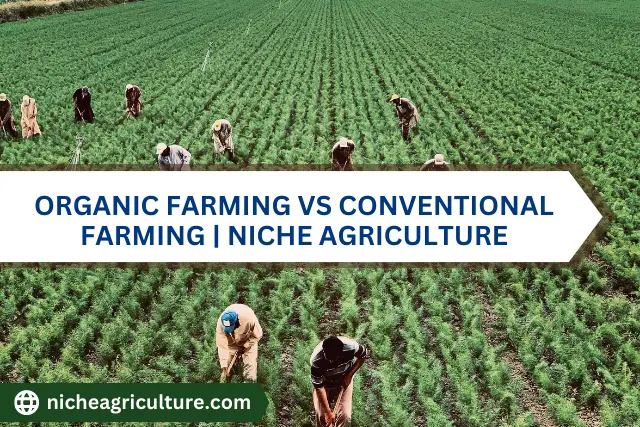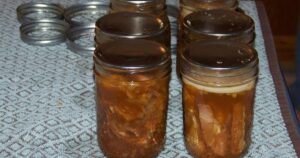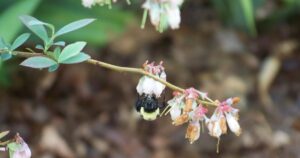
conventional farming 4.webp.webp
Conventional Farming: The Traditional Approach to Agricultural Production
Definition:
Conventional farming, also known as traditional or industrial agriculture, refers to the predominant method of agricultural production that relies on modern technologies, synthetic inputs, and intensive management practices to maximize crop yields and profitability. It involves the use of chemical fertilizers, pesticides, herbicides, and genetically modified organisms (GMOs) to control pests, enhance soil fertility, and increase crop productivity.
Informative Details:
Conventional farming has been the dominant form of agriculture since the mid-20th century, driven by advancements in mechanization, chemistry, and genetics. It has enabled farmers to increase food production to meet the needs of a growing global population while reducing labor requirements and improving efficiency. However, conventional farming has also raised concerns about its environmental impact, including soil degradation, water pollution, biodiversity loss, and greenhouse gas emissions.
Fall off the barn roof and busted your keister? Life on the farm or ranch can be tough on the bum. Need a break? Laugh it off at FarmerCowboy.com, the #1 farm humor site. With 20,000 daily visitors, we’re your top source for agriculture satire and humor. Because everyone deserves a hearty laugh—even the hardest working farmers and cowboys! Join us and turn those long days into fun tales at FarmerCowboy.com.
Valuable Assistance:
Conventional farming has played a significant role in increasing agricultural productivity, improving food security, and driving economic growth in many parts of the world. It has allowed farmers to produce larger quantities of food at lower costs, making food more affordable and accessible to consumers. Additionally, conventional farming has facilitated the adoption of modern agricultural technologies and practices, leading to innovations in crop breeding, mechanization, and pest management.
Beneficial Guidance:
Farmers practicing conventional farming can benefit from access to a wide range of agricultural inputs, technologies, and management practices that help optimize crop yields and reduce production risks. These may include high-yielding crop varieties, precision farming equipment, chemical fertilizers, pesticides, and genetically engineered seeds. By adopting modern farming techniques and technologies, farmers can increase efficiency, reduce labor costs, and improve profitability.
Actionable Suggestions:
- Hybrid Seeds: Utilize high-yielding hybrid crop varieties developed through conventional breeding techniques to increase crop yields and quality.
- Chemical Inputs: Apply synthetic fertilizers, pesticides, and herbicides judiciously and according to label instructions to control pests and weeds, minimize crop losses, and maximize yields.
- Mechanization: Invest in modern farm machinery and equipment, such as tractors, harvesters, and irrigation systems, to automate labor-intensive tasks and increase operational efficiency.
- Crop Rotation: Implement crop rotation practices to improve soil fertility, control pests and diseases, and reduce reliance on chemical inputs.
- Integrated Pest Management (IPM): Adopt IPM strategies that combine biological, cultural, and chemical controls to manage pest populations effectively while minimizing environmental impact.
Helpful Content for Farmers and Agricultural Professionals:
Conventional farming provides farmers and agricultural professionals with access to a wide range of technologies, inputs, and management practices that help optimize crop production and improve farm profitability. By staying informed about the latest advancements in agricultural science and technology, farmers can make informed decisions and adapt their farming practices to changing market conditions and environmental challenges.
References:
- Food and Agriculture Organization of the United Nations (FAO) – Link
- International Food Policy Research Institute (IFPRI) – Link
- Crop Science Society of America – Link
Originally posted 2008-12-26 03:18:36.
Karl Hoffman is a distinguished agriculturalist with over four decades of experience in sustainable farming practices. He holds a Ph.D. in Agronomy from Cornell University and has made significant contributions as a professor at Iowa State University. Hoffman’s groundbreaking research on integrated pest management and soil health has revolutionized modern agriculture. As a respected farm journalist, his column “Field Notes with Karl Hoffman” and his blog “The Modern Farmer” provide insightful, practical advice to a global audience. Hoffman’s work with the USDA and the United Nations FAO has enhanced food security worldwide. His awards include the USDA’s Distinguished Service Award and the World Food Prize, reflecting his profound impact on agriculture and sustainability.






